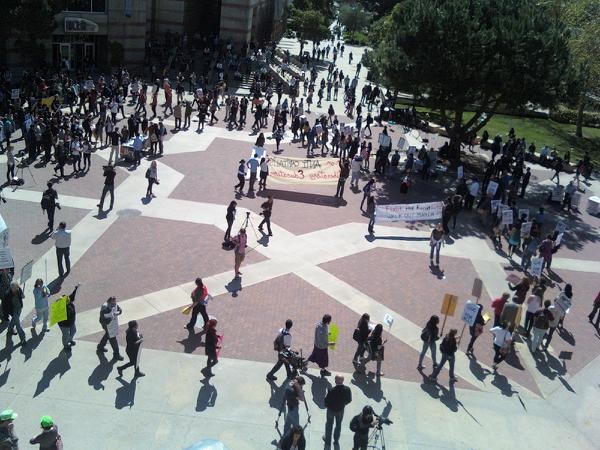A year on from Hamas’s coordinated and heinous attack on Israel on October 7th 2023, the protests on college campuses in support of Palestine which swept the nation earlier this year show no signs of slowing. Under pressure from both their student bodies and donors, college administrators have struggled to adequately protect the right of students to engage in free speech while simultaneously maintaining order on their campuses.
In the last few months, however, California has placed significant pressure on its public universities to clamp down on student protests. Over the summer, the California Legislature notified the University of California that it was withholding $25M in funding until UC President Michael Drake developed a coherent framework for protests on campus, setting him a deadline of October 1st to do so. In response, Drake announced prior to the start of the Fall semester of the new academic year that the UC’s were developing policies intended to prohibit ‘encampments, unauthorized structures, restrictions on free movement, masking to conceal identity, and refus[al] to reveal one’s identity when asked to do so.’ UCLA, the UC campus which incurred the largest costs handling last spring’s protests, recently followed suit, introducing new regulations which identify specific areas for public expression, limit the ability of students to set up encampments, and prohibit the use of graffiti or chalk on university property.
The California State University System announced similar policies prohibiting ‘encampments of any kind,’ and declaring that ‘the exercise of free speech and assembly rights shall not: ‘disrupt class instruction, or other scheduled academic, educational, or cultural/arts programs,’ nor violate CSU’s non-discrimination policy, which prohibits ‘discrimination based on any protected status, including….race or ethnicity [and] religion or religious creed.’ California took the step of formally requiring the CSU’s and the UC’s to implement such policies by passing SB1287, a bill which calls on both university systems to adopt procedures prohibiting ‘violent, harassing, intimidating, or discriminatory conduct that creates a hostile environment on campuses,’ and ‘establish reasonable content-neutral time, place, and manner restrictions, and, if applicable, any advance permitting requirements for protests on campus.’
Pro-Palestinian groups have expressed their opposition to such restrictions. Faculty for Justice in Palestine spokesperson Graeme Blair argued that UCLA’s new restrictions were a ‘transparent attempt to silence students speaking out on behalf of Palestinians dying in Gaza.’ At public universities, the First Amendment-incorporated against state institutions via the Fourteenth Amendment- undoubtedly guarantees the right of individuals to engage in political speech. The Supreme Court has afforded that right stringent protection, holding that only speech which is ‘directed to inciting or producing imminent lawless action and is likely to incite or produce such action’ may be prohibited.
Content-based prohibitions on speech have long been recognized as ‘presumptively invalid’ regardless of the state’s interest, but there is no evidence that these university policies or state laws are targeted specifically at pro-Palestinian or anti-Israel speech. Furthermore, no right in our Constitution is without its limits: the scope of our rights is instead established by a careful weighing of competing liberty interests and a determination of how best individual liberty can be squared with the needs of society. Consequently, the First Amendment doesn’t give student protestors carte blanche to disrupt the day-to-day operations of their colleges in the name of free speech. Time, place, and manner restrictions which protect the right of students to engage in the free exchange of ideas, create a more welcoming and accommodating environment for Jewish students, and allow students to reap the full benefits of the university education they are paying good money for are perfectly legitimate and ought to be promoted.
Earlier this summer, a Federal District Court held in a damming verdict that protestors at UCLA had violated the right of Jewish students to freely exercise their religion by excluding them ‘from portions of the UCLA campus because they refused to denounce their faith.’ In light of such findings, it is undeniable that robust time, place, and manner restrictions are necessary on college campuses.
The right of free expression is indispensable in our constitutional republic, but its exercise isn’t unlimited. California has taken significant steps to prohibit the disruptive, destructive, and unconstitutional behavior which has cost taxpayers millions of dollars in property damage and robbed students of the education they deserve. Time will tell how effective these measures will be, but they are undoubtedly a step in the right direction.
Nikhil Agarwal is a research associate at the Pacific Research Institute.
Photo credit: NeonTommy


